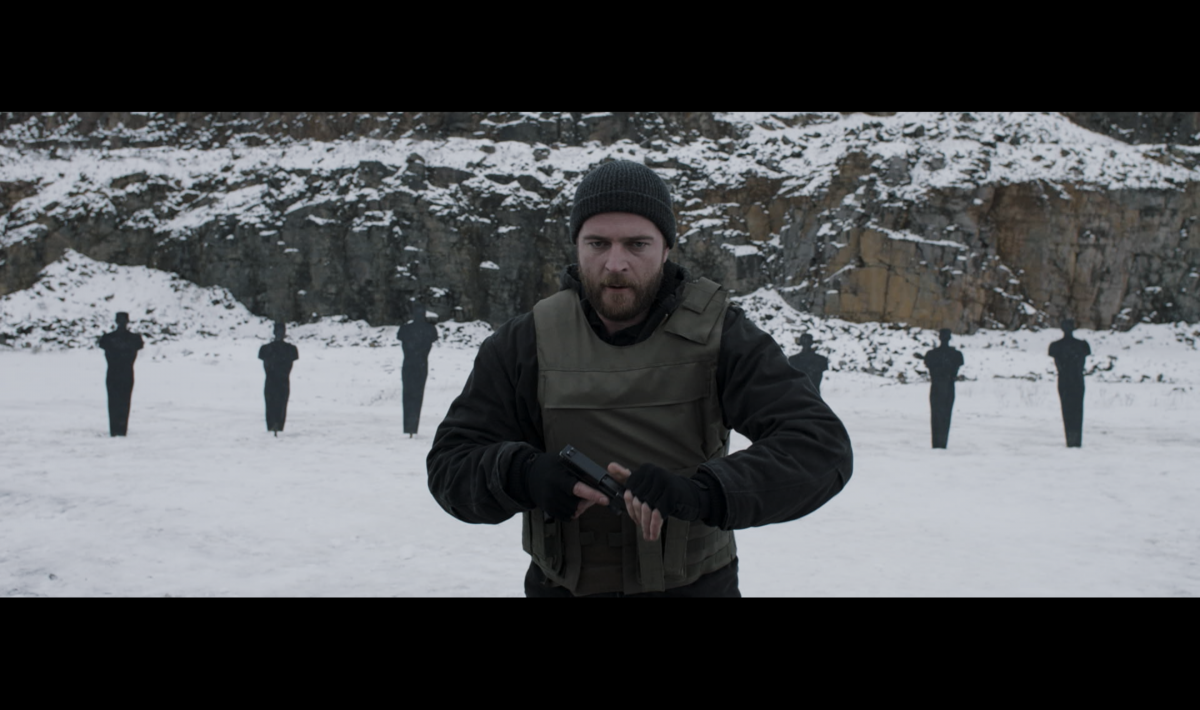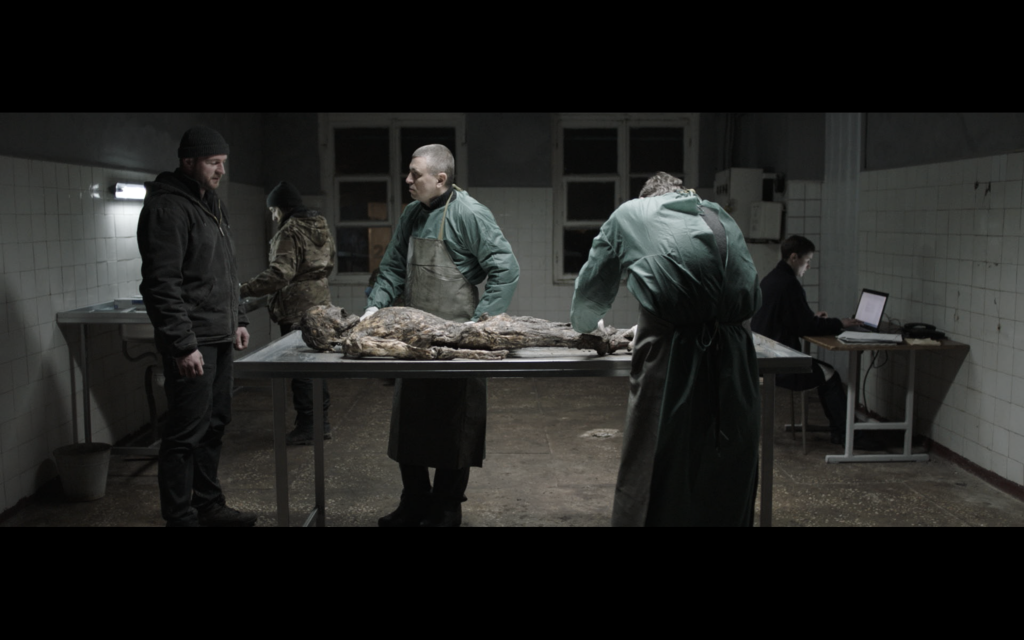I have written many times about slow cinema and have pointed how neomodernism likes to talk about solitary heroes, alienated from society, having problems with communication with other people and living in remote places, bearing the signs of the coming or past apocalypse. The winner of the Orizzonti section at this year’s Venice festival, Valentin Vasyanovych’s Atlantis, fits this description perfectly.
It is year 2025, Eastern Ukraine. One year has passed since the end of the devastating war. The deserted, almost devoid of vegetation landscape, which lacks potable water, is one huge battlefield, a minefield and a cemetery. Remnants of industry are withdrawing from the region along with people forced to abandon their former lives and set out to seek happiness elsewhere.
Among the workers affected by the closure of a nearby steel factory will be Sergei, a veteran of the war, suffering from post-traumatic stress disorder. The hero has to face not only the tangible effects of the destructive conflict, but also the feeling of senselessness of the battle fought – it does not matter which side proved to be victorious, because the war left a wound so deep that nothing can heal it.
Vasyanovych builds an inseparable bond between the hero and the world represented in a similar way as one of the leading Far Eastern neomodernists, Tsai Ming-liang (e.g. The Hole from 1998). The post-apocalyptic landscape is a picture of semi-dead Ukraine and Sergei’s iner-self at the same time. In the Ukrainian artist’s film, this reflection of the protagonist’s internal state in the landscape is not a direct response to the inner-change, as in the case of other slow movies – the change has already arrived and now only ruins remain, with which the former soldier will slowly reconcile.
The cinematographer’s work is phenomenal (the director was also the operator) – the shots of the factory are so beautiful that they can really move a viewer to the bone. Individual scenes have a perfect timing – while feeling that everything is happening as it should, that everything is part of life in this dreary world.
Contrary to appearances, neomodernism is very close to real problems. Atlantis is a remarkably anti-war film, it is a warning about what escalation of the conflict with Russia can lead to and how little the word “homeland” means when you can’t live in it.
The Ukrainian director’s film will not leave the viewer completely broken. The process of Sergei’s reconciliation with himself and his surroundings is something positive – even though it is reconciling with a barren life in the wasteland. The ending bringing Vasyanovych’s movie together suggests that there is some post-life and that perhaps it is worth more than digging up graves and conflicts.







